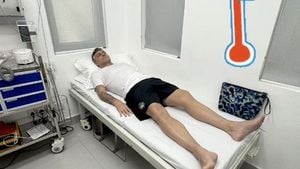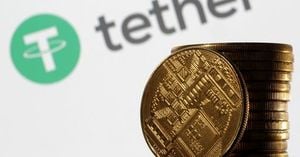In a response to global unrest, Dutch Finance Minister Eelco Heinen (VVD) presented the Voorjaarsnota on April 18, 2025, emphasizing the need for "begrotingsdiscipline" or budget discipline. This approach aims to safeguard the economy amid challenges such as the ongoing war in Ukraine, trade disputes, and rising inflation. Heinen's presentation highlighted a commitment to fiscal responsibility, stating, "As debts rise, this leads to higher taxes in the future."
However, the Voorjaarsnota has been criticized for lacking visionary investments in critical areas such as defense, climate change, and housing. Instead, it appears to be a compromise that addresses some coalition parties' desires while offering only limited measures to improve purchasing power. The document reflects a cautious approach, with Heinen asserting that there will be no breaches of budget rules or deferrals of debts.
Critics have pointed out that the government is engaging in "struisvogelpolitiek" or ostrich politics, ignoring significant issues that require attention. Sandra Phlippen, chief economist at ABN Amro, expressed concern that the government should be helping citizens become financially resilient during challenging times, especially given the changing geopolitical landscape and the impending energy transition.
Barbara Baarsma, an economics professor at the University of Amsterdam and chief economist at PwC, echoed these sentiments, stating that the coalition's short-term adjustments are insufficient to foster long-term economic growth. She noted, "Everywhere they are seeking room to benefit voters in the short term, but a strategy for economic growth is missing."
One notable aspect of the Voorjaarsnota is the reversal of a planned 1.3 billion euro VAT increase on media, culture, and sports, achieved by reducing income tax cuts. Additionally, the coalition has pledged approximately 3 billion euros to municipalities over the next three years after the Association of Dutch Municipalities (VNG) threatened legal action for insufficient funding.
The asylum budget also faced scrutiny, as Minister Marjolein Faber (PVV) had requested 900 million euros more for 2025 to accommodate the rising number of asylum seekers. The coalition ultimately allocated funds to address this pressing need.
In an effort to assist citizens financially, a one-time increase in rent allowance in 2026, dubbed the "boodschappenbonus," will amount to 1 billion euros. Social rents will be frozen for two years, which the government claims will save 492 million euros structurally by reducing rent allowance payouts. However, this freeze will cost housing corporations approximately 47.5 billion euros in income by 2030, potentially stalling the construction of 170,000 homes or hindering sustainability efforts for 1.4 million homes.
Thijs Roovers, chair of the Algemene Onderwijsbond (AOb), criticized the government's decision to eliminate a program for vulnerable students starting in 2028, arguing that this will ultimately cost society more than it saves. The education budget had already seen cuts amounting to half a billion euros, projected to rise to 1.2 billion euros by 2028.
Climate initiatives also received minimal attention in the Voorjaarsnota. During negotiations, the coalition parties withdrew 600 million euros from the Climate Fund to lower energy taxes, signaling that climate issues do not hold a priority in the government's agenda.
On defense spending, Heinen announced an increase to 1.1 billion euros by 2029, bringing defense expenditures to 2.09 percent of GDP. This figure still falls short of the ambitious 3.5 percent target set by VVD leader Dilan Yesilgöz, who emphasized the need for enhanced military readiness in light of threats from Russia.
Furthermore, the funds originally earmarked for the Lelylijn, a proposed rail connection between Lelystad and Groningen, will now be redirected to other infrastructure projects, including the Nedersaksenlijn. Heinen described this shift as a "political choice," acknowledging that the Lelylijn was already unlikely to be constructed.
The Voorjaarsnota has sparked criticism from opposition leaders, with Frans Timmermans of GroenLinks/PvdA describing it as a "good-news show" designed to placate public dissatisfaction. Rob Jetten of D66 lamented that it represents a "missed opportunity" for the country, particularly at a time when bold solutions are needed.
In a media briefing following the release of the Voorjaarsnota, Heinen acknowledged the challenges ahead, stating, "We are addressing issues step by step." This cautious approach reflects the coalition's struggle to balance immediate needs with long-term planning, leaving many to wonder if this strategy will suffice in the face of mounting economic pressures.






